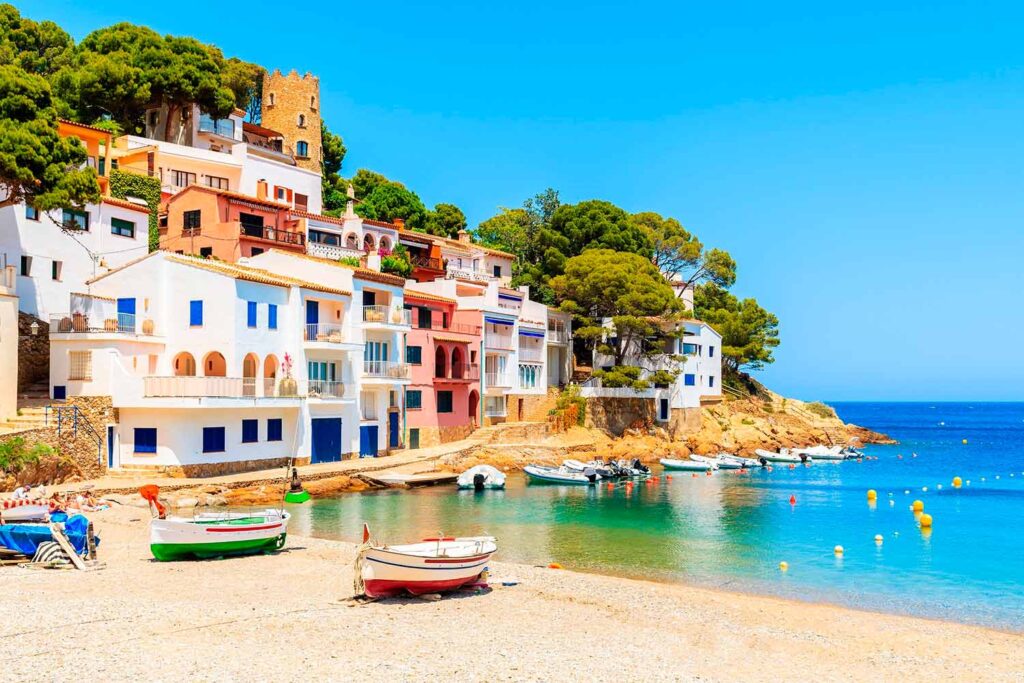Spain’s true magic isn’t just in its grand cathedrals or lively tapas bars—it’s in the quiet moments of village life, where time slows down and traditions live on. Away from the tourist-packed streets of Barcelona and Madrid, Spain reveals a more authentic side of the country, filled with rich history and cultural charm.
The soul of holidays to Spain lies in sun-drenched olive groves, centuries-old festivals, and family-run bodegas where locals still stomp grapes by foot. It’s found in the rhythm of flamenco echoing through hidden courtyards and the aroma of homemade paella drifting from seaside kitchens. These experiences during your Spain holidays paint a picture of a vibrant yet deeply rooted heritage.
For those seeking rustic charm or indulgence, all-inclusive holiday deals offer a seamless way to uncover these hidden gems. Such deals by Travelodeal offer thoughtfully crafted packages that give travelers the opportunity to experience Spain beyond the typical tourist routes. Their itineraries blend cultural authenticity with convenience, helping visitors uncover hidden gems while enjoying a seamless and memorable holiday.
The Magic of Spain’s Ancient Festivals
In rural Spain, festivals aren’t just events—they are deeply rooted expressions of history and identity. While many travellers know about La Tomatina or the Running of the Bulls, lesser-known celebrations offer a more authentic and intimate experience.
In Galicia, the Rapa das Bestas is a centuries-old tradition where villagers round up wild horses from the mountains to trim their manes in a spirited festival of skill and courage. Further south in Andalusia, the Patios de Córdoba Festival in May turns private homes into breathtaking floral exhibitions, where families open their courtyards to visitors, displaying cascading geraniums and fragrant orange blossoms.
In the province of Soria, Castilla y León, the Festival of San Juan is an electrifying mix of bull runs, music, and mediaeval-style revelry, celebrated by locals with deep passion. Unlike the heavily commercialised festivals in major cities, these rural traditions remain raw, personal, and deeply connected to the land and its people to give a memorable, unique experience in your Spain holidays.
Spain’s Timeless Art of Craftsmanship
Many rural Spanish villages have preserved centuries-old artisan skills, passing them down through generations. In Castilla-La Mancha, the town of Toledo is famed for its Damascene metalwork, where artisans hand-embed gold and silver threads into steel to create intricate jewellery and swords. In Andalusia, the village of Ubrique has been crafting high-quality leather goods for centuries, supplying some of the world’s top luxury brands.
In the Canary Islands, artisans still weave delicate lace and embroidery using techniques dating back to the 16th century, while in the Basque Country, families continue the ancient craft of making hand-carved wooden shepherd’s staffs and traditional espadrille shoes.
A Culinary Tradition Rooted in the Land
Spanish food is famous worldwide, but rural cuisine offers a depth of tradition and flavour that many travellers miss. In Asturias, remote villages still prepare fabada asturiana, a hearty bean stew cooked over slow-burning wood fires, just as it has been for centuries. In the mountains of Extremadura, jamón ibérico is cured in the crisp air, a process that takes years to perfect and results in some of the most prized ham in the world.
In La Rioja, small family-run wineries still harvest grapes by hand and age their wines in underground cellars built by their ancestors. Meanwhile, in the fishing villages of Galicia, seafood is prepared using ancient Celtic techniques, preserving the purity of flavours that have been enjoyed for generations. These culinary traditions are more than just meals—they are rituals, stories, and a deep connection to the land.
The Spirit of Rural Hospitality
One of the greatest joys of exploring rural Spain is experiencing its warm and welcoming communities. Unlike the anonymity of big cities, in small villages, everyone knows each other, and visitors are treated like family.
In regions like Aragón and Navarra, family-run farmhouses, known as caseríos, offer travellers the chance to stay in centuries-old homes, enjoy homemade cheeses, and learn about traditional farming methods. In Andalusia’s whitewashed villages, life is still centred around the town square, where elders gather to share stories while children play freely in the streets.
A Journey to Spain’s Heart and Soul
While Spain’s major cities offer grandeur and excitement, its rural villages hold the country’s true spirit. The festivals, craftsmanship, food, and hospitality found here are expressions of a timeless way of life, one that remains untouched by mass tourism. For those who seek authenticity over sightseeing checklists, venturing into the countryside is a journey into the heart and soul of Spain.


